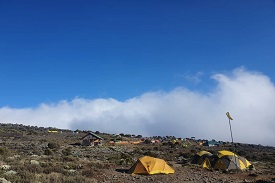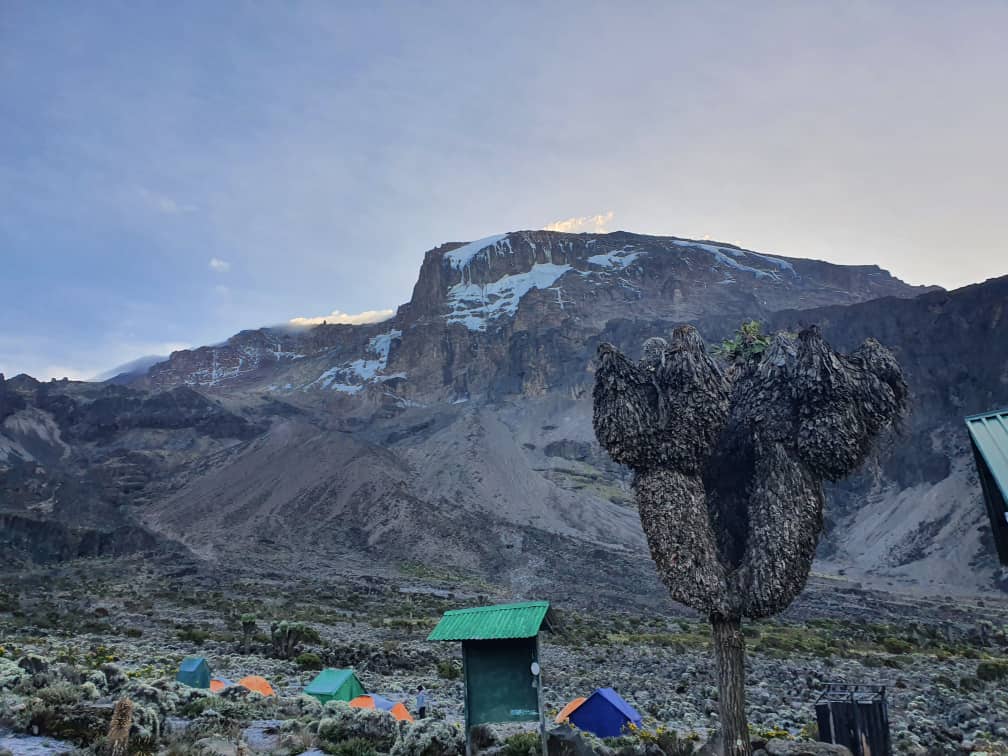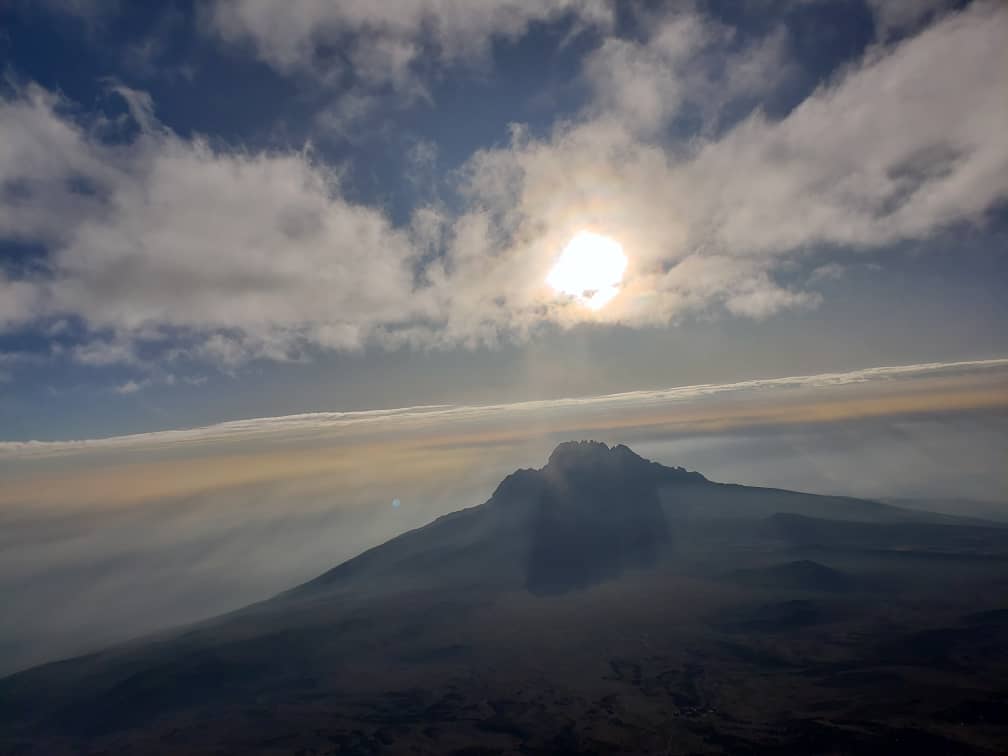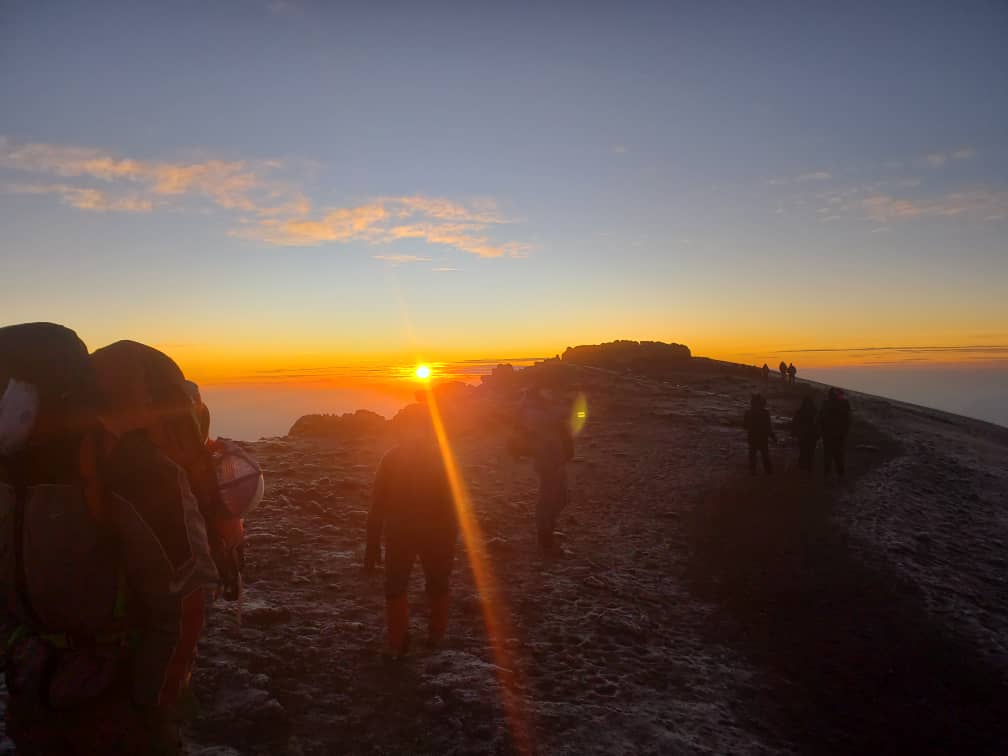Includes
Transfers: Airport transfers and transport to/from the mountain.
Accommodation: Two nights' hotel accommodation in Moshi (before and after the climb).
Meals: All meals on the mountain, including breakfast, lunch, and dinner.
Guides and Porters: Professional mountain guides, porters, and cooks.
Park Fees: Kilimanjaro National Park fees, camping fees, and rescue fees.
Equipment: Tents and sleeping mats.
Water: Purified water on the mountain.
Excludes
Flights: International and domestic flights.
Visas: Entry visa to Tanzania.
Personal Gear: Personal trekking gear (e.g., sleeping bags, clothing).
Tips: Gratuities for guides, porters, and cooks.
Personal Expenses: Personal expenses (e.g., travel insurance, personal snacks, beverages).
Important information
Physical Preparation
Fitness Level: Ensure you are in good physical condition. Regular cardiovascular exercises like running, cycling, and swimming, combined with strength training and hiking, are recommended.
Altitude Training: If possible, practice hiking at higher altitudes to get accustomed to lower oxygen levels.
Health and Safety
Altitude Sickness: Be aware of the symptoms of altitude sickness, such as headaches, nausea, dizziness, and fatigue. Proper acclimatization, hydration, and pacing are crucial.
Vaccinations: Check with your healthcare provider for recommended vaccinations before traveling to Tanzania.
Medications: Bring any necessary personal medications. Consider consulting with a healthcare professional about medication for altitude sickness, such as Diamox.
Gear and Equipment
Clothing: Pack in layers to adjust to varying temperatures. Essential items include thermal underwear, moisture-wicking base layers, insulating mid-layers, and waterproof outer layers.
Footwear: Sturdy, well-broken-in hiking boots are crucial. Bring comfortable, moisture-wicking socks.
Sleeping Gear: A high-quality, cold-weather sleeping bag is essential. A sleeping pad for added comfort and insulation is also recommended.
Accessories: Include gloves, a warm hat, a sun hat, sunglasses, and a buff or scarf for wind protection.
Documentation and Finances
Passport and Visa: Ensure your passport is valid for at least six months beyond your intended stay. Obtain a Tanzanian visa in advance or on arrival.
Insurance: Comprehensive travel insurance covering high-altitude trekking, medical emergencies, trip cancellations, and evacuation is essential.
Money: Carry enough cash in USD for tips and personal expenses, as credit card facilities may not be available in remote areas. ATMs are accessible in major towns but not on the mountain.
Environmental Responsibility
Leave No Trace: Follow the principles of Leave No Trace. Pack out all trash, respect wildlife, and minimize your environmental impact.
Waste Disposal: Use designated toilets at campsites. Bring a personal portable toilet if preferred for hygiene.
Cultural Considerations
Local Customs: Respect local customs and traditions. Learn basic Swahili phrases to enhance your interactions with porters and guides.
Tipping: Tipping is customary and appreciated. Budget for tips for guides, porters, and cooks. Guidelines for tipping will be provided by your tour operator.
Daily Routine on the Trek
Early Starts: Expect early morning starts to make the most of daylight and favorable weather conditions.
Pacing: Maintain a steady, manageable pace. The Swahili phrase "pole pole" (slowly, slowly) is a guiding principle for climbing Kilimanjaro.
Hydration and Nutrition: Drink plenty of water to stay hydrated. Eat well-balanced meals provided by your trekking team to maintain energy levels.
Weather Conditions
Variable Weather: Prepare for a range of weather conditions, from hot and humid in the rainforest to freezing cold near the summit. Be ready for sudden changes in weather.
Summit Night: The final ascent to the summit is done at night to reach Uhuru Peak by sunrise. This is the coldest and most challenging part of the trek, requiring warm clothing and determination.
Final Preparations
Packing List: Review and adhere to the recommended packing list provided by Horizon Seeker Adventure. Ensure you have all essential gear and supplies.
Mental Preparation: Mentally prepare for the physical and psychological challenges of the trek. A positive mindset and determination are key to a successful summit.
Conclusion
The 6-day Lemosho Route offers a challenging yet scenic journey to the summit of Mount Kilimanjaro. With proper preparation, respect for the environment and local culture, and an understanding of the trek’s demands, you can look forward to a successful and unforgettable adventure to the roof of Africa.









